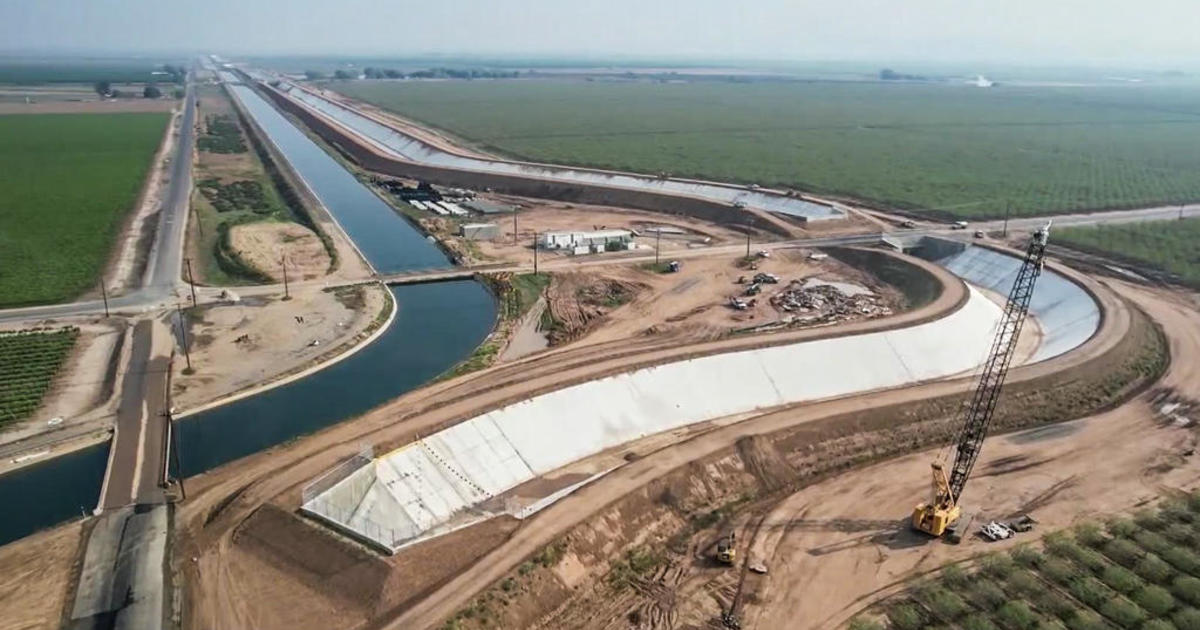Rising Cost Of Gas Prompts Renewed Discussion Of 'Mystery Surcharge'
BERKELEY (KPIX 5) – Californians are currently paying about $1.70 more per gallon than the national average. As lawmakers discuss ways to help offset some of the rising costs there is again talk of the "mystery surcharge" now seven years old.
There are a number of known reasons why Californians pay more for gas. For instance, there are taxes and environmental fees that are higher in California. There's also the cost of producing the specific blends of gas that we use here.
"All of those, taxes, the cost of making the cleaner gasoline are legitimate, they definitely do make a difference," says UC Berkeley Economist Severin Borenstein. "Prior to 2015, explained the entire difference between California and the rest of the country."
That's when the Torrance refinery explosion occurred and caused a statewide price jump.
Borenstein said prices never fully recovered. By his math, even if one throws out all of the taxes and extra production costs, California prices are still higher than the national average.
"In 2021, the differential averaged $.30 a gallon," Borenstein told KPIX 5. "And that translates to about $4 billion for California over the course of a year."
"Yeah, so with one tank here, and one tank there, it's getting pretty bad," said Myles Darrah as he filled up his pickup in Martinez. "All together, it's about $250 to fill up."
The current surge in prices has Sacramento talking about gas costs, and the so-called "mystery surcharge"' has surfaced in that discussion - again. Gov. Gavin Newsom ordered an investigation in 2019, and Borenstein himself was part of a committee that looked at this in 2017.
"And we had no power to compel the oil companies to talk to us, so they didn't," Borenstein said. "And so we haven't really cracked the nut of what happened, what changed, and why we are seeing much higher prices."
Oil producers say what we are seeing is simply the cost of doing business in California. Some are hoping the cost pains will drive another penny-by-penny look at the math.
"If it's costing $4 billion a year, you would think it's worth a few million to try to figure it out," Borenstein said. "They have not been willing to do that yet."
As for that state hearing, it turned into a bit of a shouting match for a moment when Democrats moved to take a bill that would have suspended the gas tax, and replaced it with language adding a new tax on gas suppliers.
In a statement, a spokesperson for the Western States Petroleum Association said: "No one wants to pay high prices at the gas pumps. The fact is that there are many factors that influence movement in the price of gasoline and diesel: cost of land, convenience and location, branding, and taxes and fees, but none is greater than the dynamics of supply and demand of crude oil. Also, it's important that Californians know that the first $1.30 they pay per gallon of gasoline goes toward taxes and climate program related fees. The Governor, Attorney General, and their fact-finding special committee have all failed to identify any price gouging by oil industry members. This is not a time for finger-pointing and vilifying. Our collective focus should be what we can do now to limit market uncertainty in the future and not wait for another crisis. As the state transitions toward embracing more renewable, sustainable energy sources, the reality is that we're going to need affordable, reliable fuel for almost 40 million people for the foreseeable future."



